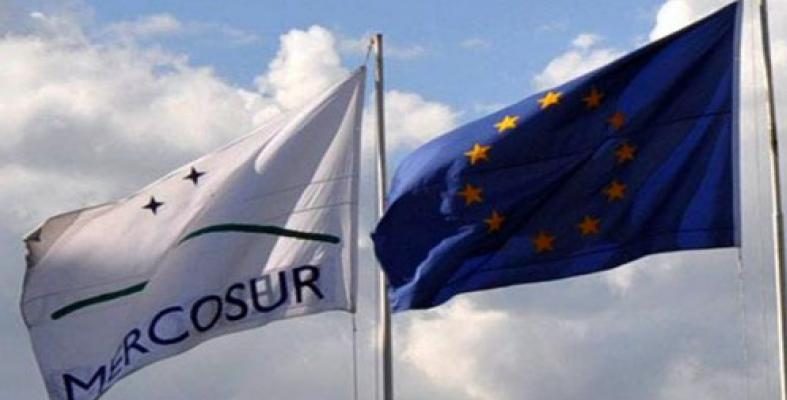
MERCOSUR, the Common Market of the South, continues to focus on a future agreement with the European Union.
By Roberto Morejón
MERCOSUR, the Common Market of the South, continues to focus on a future agreement with the European Union.
At the Summit of Heads of State held recently in Argentina's Puerto Iguazú, the issue of negotiations with the EU consumed much of the time.
The presidents of Brazil, Luiz Inacio Lula Da Silva; of Argentina, Alberto Fernández; of Paraguay, Mario Abdo and of Uruguay, Luis Lacalle Pou, with the participation of the Bolivian Luis Arce as his country is in the process of joining the mechanism, discussed the complexities of an agreement stalled since 2019.
With previous negotiations extended for a decade, a compromise is almost unattainable and obstacles persist.
MERCOSUR members complain about what they consider excessive demands of the EU in the area of environment, related to imports of the agricultural sector, an economic resource of Brazil, Uruguay, Paraguay and Argentina.
The members of the regional bloc are reticent about the demands of the Group of 27, fearing that they might turn into pressure bordering on sanctions, the weapon of choice of the industrialized North.
It is true that since the inauguration of Lula as President of Brazil, Brussels has considered it feasible to pave the way for a pact with MERCOSUR, given that the former labor leader is fighting against the deforestation of the Amazon.
But Lula Da Silva, together with his Argentinean counterpart, Alberto Fernandez, considers that the Old Continent is excessively focused on the environmental angle, forgetting the other dimensions of sustainability, economic and social.
But the setbacks on the road to a MERCOSUR agreement with the EU do not only come from Brussels, because Uruguay is impatient.
The right-wing head of state Luis Lacalle Pou criticizes MERCOSUR for what he describes as immobility in the negotiations to open up to trade negotiations with third countries and the EU itself.
As can be seen, the topic of contacts with the EU dominated the MERCOSUR meeting, leaving aside striking issues such as the increase of internal trade.
Now, under the pro tempore presidency of Brazil, the four countries of the Union created in 1991 are to draw up a counter-proposal to the most recent statements of the 27.
On the side of the economically less favored bloc, they do not want unbalanced agreements and a deepening of asymmetries.

